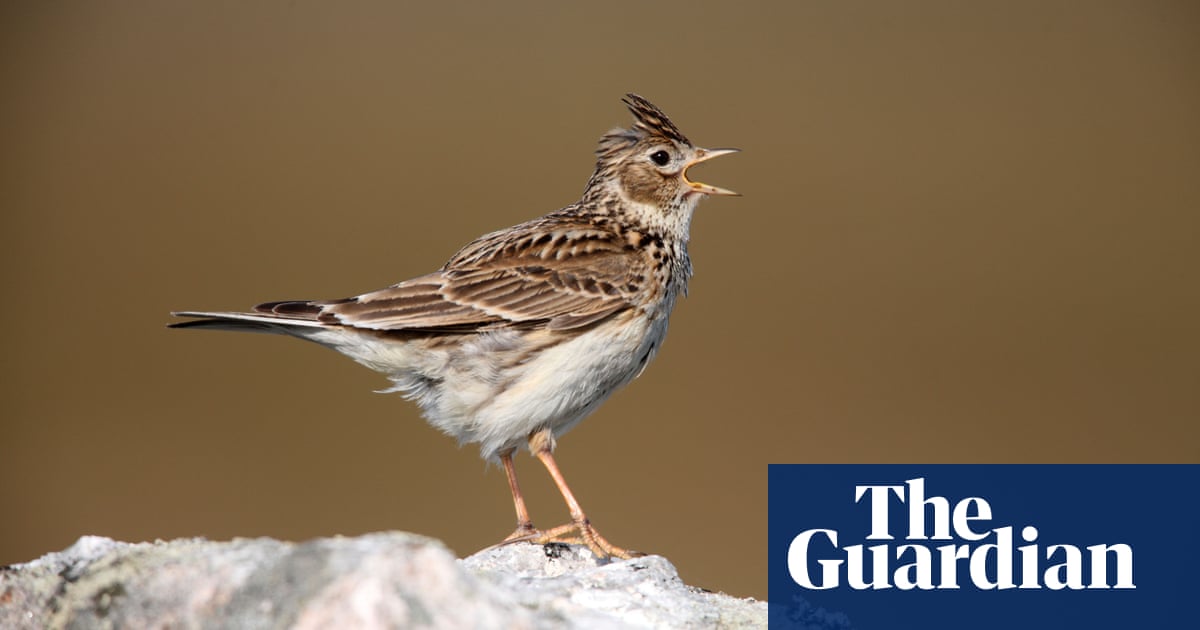
Bird protection campaigners have accused the French government of flouting European regulations after it rescinded a ban on traditional hunting.
They accuse ministers of giving in to lobbying by powerful hunting groups to allow the trapping of thousands of birds as part of an “experimental study”.
Most traditional trapping methods were banned in France in 2021 under the threat of fines from the European Commission.
The ministry of ecological transition has now temporarily overturned the embargo on two practices: using large nets placed horizontally in the path of birds – usually attracted by the calls of a caged bird – and wire or wood traps.
The “study” began at the start of this month and is due to continue until 20 November. Its stated aim is to establishing whether these methods are selective, with the eventual goal, hunting organisations hope, of allowing them to continue.
Hunters are being allowed to catch 6,000 skylarks using pantes (horizontal nets) or matoles (drop cages) in four departments in south-west France and 500 lapwings and 15 golden plovers in the Ardennes in the north-east.
Allain Bougrain-Dubourg, the president of the French Bird Protection League (LPO), said: “This determination to encourage non-selective trapping is unworthy of a country that claims to be a leader in the recovery of biodiversity … it’s clear the matoles trap a multitude of protected species, and are not selective. Even if the birds are released, they are at best stressed, at worst subjected to mistreatment that is unacceptable in the 21st century.”
France’s State Council previously outlawed these trapping methods, stating there was “a serious doubt about whether they conform to European legal rules”.
The EU has opened proceedings against Malta, which has used the same “experimental” justification for allowing the trapping of finches, and a court hearing is expected early next year.
Yves Verilhac, a former director general of the LPO and lifelong bird protection campaigner, added: “They have taken the pretext of science for allowing this. It may be only a few thousand birds, but these are species whose numbers are dwindling and these methods have been banned.
“We have reported the government once again to the European court in the hope they will start imposing fines.”
Verilhac says allowing the hunters themselves to monitor the “study” is akin to “letting the fox oversee the chickens”.
“The hunters know this type of hunting is finished but are fighting to the last to carry on. There is no doubt this ‘study’ will find the methods selective when we know the nets and cages catch all kinds of birds.”
Nicolas Rivet, the director general of the National Federation of Hunters (FNC), defended the ban reversal.
“This isn’t about reopening the hunt. The trapping will only happen in three places in each department and will have a time limit. The aim is to objectively establish if these practices are selective,” Rivet told Le Monde.
The question of whether these historic hunting methods target specific species or traps birds at random, even protected species, is at the heart of a battle that has divided France for decades.
In 2021, European judges gave France a final warning to outlaw the hunting of songbirds using glue sticks, which it did.
According to the International Union for Conservation of Nature and the National Museum for Natural History, the skylark, whose numbers have dropped 20% in 15 years, is “symbolic” of the decline in common birds due to the intensification of farming practices, and in particular the use of pesticides.












